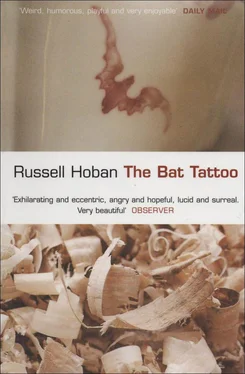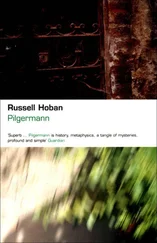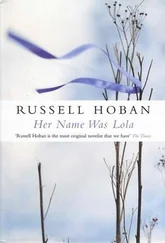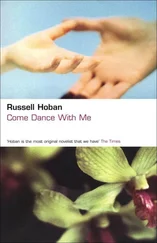‘Are you saying there is a God?’
No answer.
I begin to be tired of talking about this. The next day I looked at the tympanum by daylight and still Christ said nothing. As I turned to start down the hill the bells shouted, ‘There is a God! Believe us!’ I waved goodbye without turning around, and walked down to the Hôtel de France where I had coffee and Poire William. Then I took the bus to Le Creusot where I got the TGV train to the Gare de Lyon; from there the RER to Franklin D. Roosevelt, and from there I walked home. No longer was I looking for meaning but still I wanted something and I had no idea what it might be.
Last night I dreamt that Jennifer and I were with some kind of tour group; I don’t know where we’d come from or where we were going. We’d had to move out of one hotel into another and we were worried about flight connections. A bellhop in a red jacket with brass buttons said, ‘Would you like to upgrade your menu?’ and gave us two very large shiny menus with illustrations in colour. We couldn’t make out what the pictures were and there were only a few words in English, randomly jumbled together with several other languages. It was a sickening sort of dream, and when I woke up out of it I fell back into it.
It’s true that I’m not sure where I’m coming from and I don’t know where I’m going. I’ve had to move out of what was before and I don’t know how to make the connection to whatever’s coming next; I’ve no idea what’s on the menu although I’d like something better than what I’ve had on my plate since Jennifer’s death.
About six months after the crash I went to see a Dr Wakem. He was Martin Gold’s therapist and Martin swore by him. ‘A no-bullshit kind of guy’ was how he described him.
‘Depression,’ said Dr Wakem to me, ‘is anger turned against the self.’
‘It’s more than anger,’ I said. ‘I hate myself.’
Dr Wakem was a stocky man with close-cropped sandy hair and a bullet head that looked as if he could knock down walls with it. His blue eyes also seemed very hard. He fixed me with a cold stare, then lowered his bullet head as if he might butt me through the wall behind me. ‘Why do you hate yourself?’ he said.
‘I killed my wife by drinking too much and driving without due care. That reason enough?’
‘Definitely.’ He nodded in a satisfied way, like the man who comes down the ladder to tell you that you need a whole new roof. ‘How long ago was this?’
‘A little over six months.’
‘What actually happened?’
‘Another car hit us on the passenger side. It was at night, raining, very dark. I never saw that car until it hit us. The driver just backed up and took off, I didn’t get his number. Or hers, if it was a woman.’
‘Could it have been the other driver’s fault?’
‘When the paramedics breathalysed me I was well over the limit and I couldn’t walk in a straight line. Maybe the other guy was in the same kind of shape, I don’t know. If I’d been sober I’d have approached that intersection more cautiously. The police thought it was worth a one-year ban but that doesn’t matter because I won’t be driving any more.’
‘Your wife died instantly?’
‘Yes.’ His question made me see Jennifer as she looked after it happened, her face turned towards me, her eyes closed, her mouth open. Why did he need to know how long it took her to die?
‘And now you see her face as she died and you’re haunted by it?’ he continued.
‘Yes.’ I considered planting my fist in his face; if he lowered his head I’d probably break my hand.
‘And you wake up in the morning hating yourself?’
‘I go to bed hating myself and I get up hating myself, and I hate myself in between, OK?’
‘But it was an accident, right?’
‘It was an accident but I made it happen.’
‘How did you make it happen?’
‘I told you: by drinking too much.’
‘Did you know that you were going to be driving?’
‘Yes.’
‘So then why did you drink too much?’
‘Lots of people do.’
‘That’s not a good enough answer. Did you know that drinking would impair your judgement and your reflexes when driving?’
‘Sometimes I drive better when I’m a little over the limit.’
‘That’s what I mean by impaired judgement. Let me put it another way: if you were driving when you had too much to drink, was it really an accident?’
‘What are you getting at?’
‘There aren’t really that many accidents, are there? If you do Thing A that makes Thing B happen, there’s no reason to be surprised, is there?’
‘Are you saying that I wanted to kill my wife?’
‘I’m saying we need to look at what came before the accident.’
‘Like what?’
‘Like how were things between you and your wife.’
‘Is this how you get your jollies or what?’
‘This is how we find out what makes things happen.’
‘Right. Well, Doc, I think your time is up. Bye bye.’ I got up and walked out. Looking back on it later I understood that I didn’t really want to know all there was to know about the accident. After a while I got used to my guilt.
Nonetheless I was hoping, with time, to get her death off my back, but it was behind me whichever way I turned. At first I’d been like a parent to it but gradually it became the parent and I the child. When would I grow up and move out of its house? I rubbed my bat tattoo and remembered with embarrassment that I had done it in the expectation that my life was going to change. So far the only change was that I felt more confused than before.
More and more I found myself at the Church of St John’s in the North End Road. That smooth fibreglass Jesus had begun to pull me; the idea of someone’s dying for our sins was much in my mind. What a lot of big and little sins there were to die for! How could one man handle all of them? But of course that was his thing, that was what made him special. I wished it were a system I could believe in.
It was a damp and foggy November morning with a chill in the air. The fog made everything more personal, as if it were taking me aside to tell me a secret. I was leaning on the church railings and looking at Christ when the John Smith drinker who’d asked me what I wanted from Jesus appeared. I wondered what my answer would be if he asked the same thing again.
‘Getting any messages?’ he said.
‘Not so far. The last time we spoke you quoted Psalm 137.’
‘I remember.’
‘You said there was a lot of Babylon around here but what Zion do you remember? If you don’t mind my asking.’
He shook his head. ‘Right now that remembered Zion is all I’ve got and it isn’t something I show around. Haven’t you got one of your own?’
Again the smells of oil and metal, cigarette smoke and Jack Daniel’s came to me with my father at his work-bench under the light of the green-shaded bulb. Is that my Zion? I thought. Is that all there is? Nothing since my boyhood? I tried to see Jennifer’s face and couldn’t. The John Smith man was watching me with his head cocked to one side. ‘Yes,’ I said, ‘I’ve got one. My name’s Roswell Clark. What’s yours?’
‘Abraham Selby.’ We shook hands. ‘Zion is what you think there’s no end of when you have it, then all of a sudden it’s gone and there wasn’t really that much of it.’
‘Can I quote you?’
‘Any time. Now I need to think about what I just said. I’ll see you.’ He went back to the low-budget drinking community and found himself a place to sit on the low wall around the trees. He couldn’t be too badly off, I reflected, if he found it worthwhile to think about what he said.
Читать дальше












